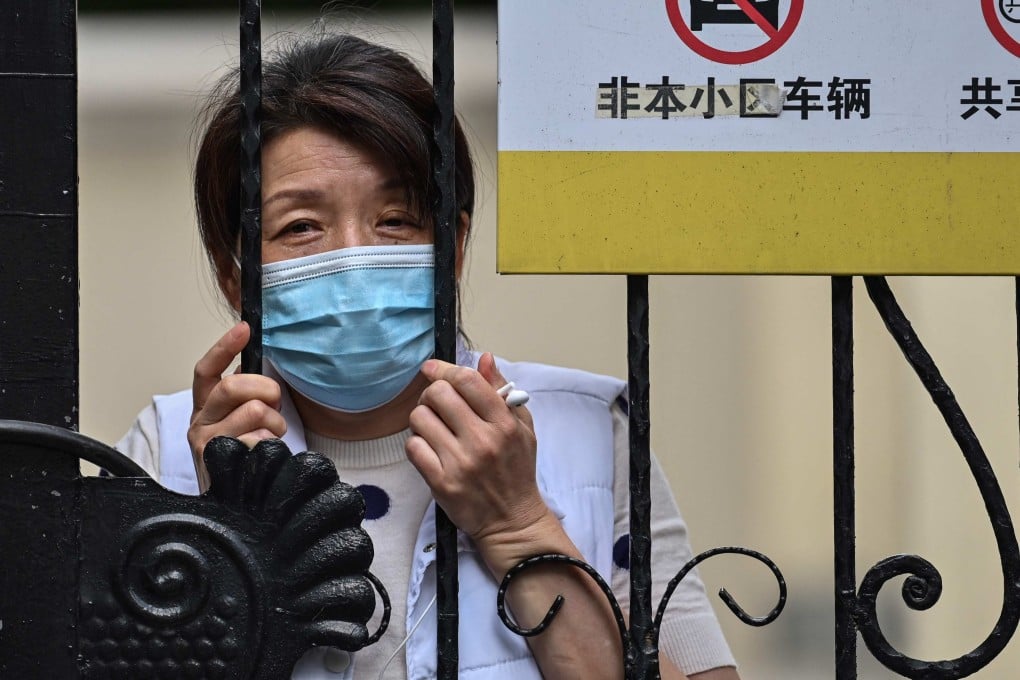Shanghai’s lockdown will end ‘as scripted’, city’s Commissar says, as fewer than 50 Covid-19 cases show symptoms for second day
- New Covid-19 cases dropped 12.7 per cent to 338 over the past 24 hours, according to data released on Thursday, the lowest daily tally since March 18
- Symptomatic cases rose by 9 per cent to 48, the second day that the infections remained below 50, while one patient died

Shanghai’s daily Covid-19 cases stayed below 500 for the third consecutive day, in a positive sign that prompted the city’s Communist Party chief to promise an end next week to the citywide lockdown “according to script”.
New cases dropped 12.7 per cent to 338 over the past 24 hours from the previous day, according to data released on Thursday. That’s the lowest daily tally since March 18, and the third day that the number had stayed below 500. Symptomatic cases rose 9 per cent to 48, the second day that the infections held below 50, while one patient died.
The positive turn gave the city’s Commissar Li Qiang enough confidence to begin loosening some of the government’s stranglehold on movement, work and daily lives in the city of 25 million residents. A government statement quoted him as putting the emphasis on city residents being “self-disciplined and responsible for their own health”.
“Shanghai’s full return to normalcy can be guaranteed because of our hard work,” the statement quoted Li as saying, after an inspection tour on Wednesday in Jinshan district, the first of the city’s 16 administrative regions to fully restore public transport.
